The Most Important Things a Cover Letter Should Include
Your cover letter should include the most important information about you and your experience, and be tailored for each job. What do you need to say to get hired?
Your cover letter should include the most important information about you and your experience, and be tailored for each job. What do you need to say to get hired?
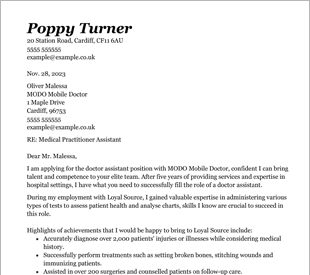
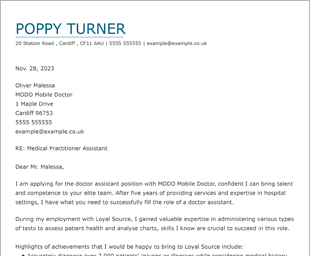
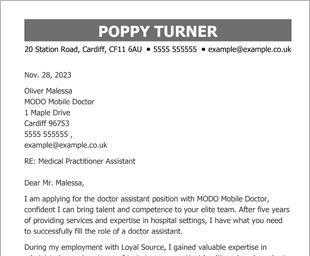
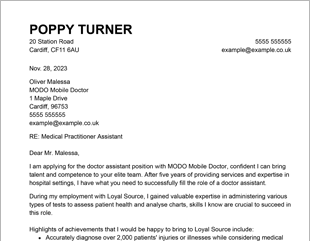
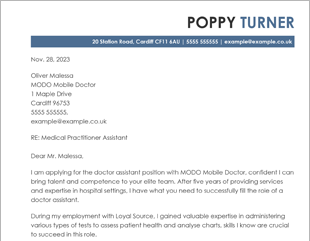
OUR USERS HAVE BEEN HIRED BY
So you’ve spent time creating a great resume that addresses all of the main concerns of the job description and you know what you’re going to wear to the job interview (when you get it). But you still need to write a good cover letter and tailor its content for every job application. While it’s important to match the appearance of your cover letter with your resume, the content is absolutely crucial. Here’s what you should include in your cover letter.
There are some key elements that you should consider before you even begin formulating your cover letter: the job description, your work experience, your core competencies, and your unique selling point (USP). The meeting point between all these factors is what you should aim to show in your cover letter as this will show recruiters that you are the ideal candidate for the job. You should also consider your interview availability before applying. When you start writing your cover letter you should include the following elements:
If you can use the hiring manager’s name in your salutation you should do so. “Dear Mr. Smith” or “Dear Ms. Jones” are much better ways to start a cover letter than “To Whom It May Concern” or “Dear Hiring Manager”. If you absolutely cannot find the hiring manager’s name, however, or there is a panel in charge of the hiring process, these generic salutations are better than informal alternatives.
State the company name and job title that you are applying for in the opening paragraph. This will prevent confusion if the company is hiring for more than one position in that department.
Provide a clear and specific example of a relevant achievement in your work history or academic life. Ideally, this should be an achievement that showcases relevant skills that will be useful to the job you are applying for. For example, if you’re in the middle of a job search for a senior sales position, discuss your most successful sales month.
The job posting should give you all the information you need about the employer’s needs and wants. An effective cover letter should address these points directly, so discuss what makes you right for the job by taking key points from the job description. For example, if the job posting calls for a “friendly, goal-oriented” customer service associate, highlight your communication skills and career goals.
Every job seeker has a unique mix of skills and experience to bring to the table. Focus on what makes you uniquely suited for the role and you will write a great cover letter that makes a good first impression. For example, if you had previously worked in the military and then undertaken a teaching degree, you could highlight how your military service helps you to function under pressure. Try to focus on relevant experience only.
Whether you can start work immediately or you need to give notice, it is a good idea to include your interview and work availability. You can do this briefly, for example by stating “I can commence work as of the 1st of April” or be more detailed, but keep it as concise as possible. This information can help human resources streamline the hiring process and may help you stand out.
Your closing paragraph is as important as your salutation and first paragraph. Focus on providing a strong call to action. For example: “I look forward to speaking with you” or “I would love the opportunity to discuss this further”. Once you have done this, sign off professionally with “Sincerely” or “Best regards” and use your full name.
The best cover letter is one that provides all the information a hiring manager needs in a short space. If you want to give your application the best chance of success, you should not only follow the advice given above but also avoid these cover letter mistakes.
Your cover letter should be easy to scan because recruiters are busy. Choose a legible font, keep text between sizes 10.5 and 12, and use proper margin sizes to ensure readability. Follow these formatting guidelines for the best results.
While it can be tempting to cram as much information as possible into a cover letter, you should avoid creating a wall of text. Recruiters are likely to discard applications that come with packed, hard-to-read cover letters.
Generic, vague statements like “I am a quick learner” may sound good, but they mean little to hiring managers. Stick to the specifics.
Keywords may be crucial for applicant tracking systems (ATS) that employers use to scan resumes and cover letters for keywords, but if you cram your cover letter full of them it will read poorly. Try to write naturally.
Don’t make promises you can’t keep and don’t guarantee spectacular results. Hiring managers will either discard your application or want proof you might not have that you can follow through.
The main purpose of a cover letter is to supplement your resume and showcase your skills in a way that catches a recruiter’s attention and prompts them to arrange a job interview. Your cover letter presents a unique opportunity to provide context and additional relevant information to support your job application.
Your cover letter should include a header containing the date, employer contact information, and your contact information that includes your phone number and email address. Under the header, you should include a professional salutation, followed by two to three body paragraphs, a call to action, and complimentary closing. You should set your margins to between .5 of an inch and 1 inch, and choose a professional font in size 12 pt. Consider these cover letter formatting tips for detailed guidance.
The most basic way to check your cover letter before submitting is by proofreading it. You can do this manually or with spell check. Use the ResumeHelp cover letter builder and one of its free resume templates to ensure proper formatting.
We personalize your experience.
We use cookies in our website to ensure we give you the best experience, get to know our users and deliver better marketing. For this purpose, we may share the information collected with third parties. By clicking “Allow cookies” you give us your consent to use all cookies. If you prefer to manage your cookies click on the “Manage cookies” link below.